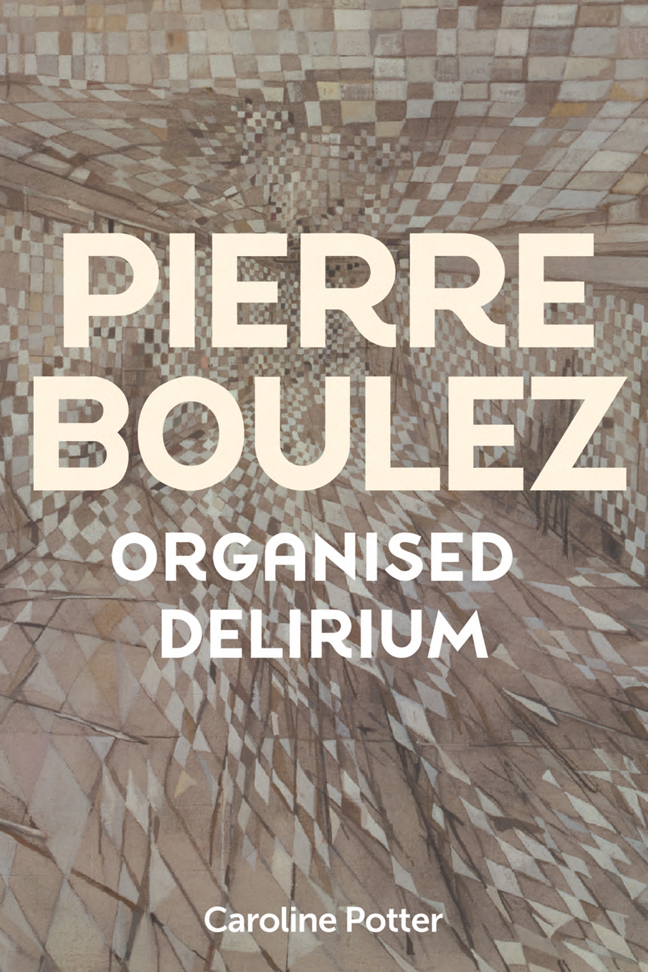Book contents
- Frontmatter
- Contents
- List of illustrations
- Acknowledgements
- Introduction: Organised Delirium
- 1 Surrealism in the 1930s and 40s
- 2 ‘A flayed lion’: Boulez as student
- 3 Serialism and surrealism: Boulez's instrumental music 1946–8
- 4 Fureur et mystère: the first versions of Boulez's René Char settings
- 5 The charm of numbers: continuing threads in Boulez's later music
- Select bibliography
- Index
3 - Serialism and surrealism: Boulez's instrumental music 1946–8
Published online by Cambridge University Press: 21 February 2024
- Frontmatter
- Contents
- List of illustrations
- Acknowledgements
- Introduction: Organised Delirium
- 1 Surrealism in the 1930s and 40s
- 2 ‘A flayed lion’: Boulez as student
- 3 Serialism and surrealism: Boulez's instrumental music 1946–8
- 4 Fureur et mystère: the first versions of Boulez's René Char settings
- 5 The charm of numbers: continuing threads in Boulez's later music
- Select bibliography
- Index
Summary
Boulez, Leibowitz and aesthetic protests
The final key influence on the young Boulez was the Second Viennese School. Schoenberg, Berg and Webern were very little known in France in the mid-1940s, and René Leibowitz (1913–72) can be credited with introducing Boulez to these composers, whatever their subsequent disagreements. Most publications on Boulez highlight the importance of Webern's serial language to the young composer, but Schoenberg was arguably a stronger influence on his earliest works. Michel Leiris's article on Schoenberg, first published in a programme book for one of Leibowitz's concerts, ends with words that could equally apply to Boulez:
Going far beyond the solutions proposed by his contemporaries, who were infatuated with Reason, Humour or Brutality, Arnold Schoenberg genially takes part in this process, because – abandoning himself entirely to this ‘inner constraint’ whose slave he declares himself to have been – he is not afraid to place music on a point that is steeper and more vulnerable than any other: vertigo's very crest, bristling with saw teeth.
It was the hyper-emotional, expressionist Schoenberg that Boulez knew before February 1945, when he attended a concert at the home of Claude Halphen, a young supporter of contemporary music. Boulez told Antoine Goléa that this was
my first encounter with serial music. Songs by Max Deutsch and a piece by André Casanova, a young student of Leibowitz, were performed, and Leibowitz directed Schoenberg's Wind Quintet. It was like an illumination for me. I had a passionate desire to get to know this music, most of all, in the first instance, to learn how it was constructed.
This prompted Boulez to attend Leibowitz's private classes from spring 1945 to autumn 1946, again as part of a group of fellow private students of Messiaen including Nigg, Grimaud and Loriod. Nigg told Jean Boivin that he instigated the ‘defection’ of Messiaen's students to study with Leibowitz, whom he had met through his first French pupil, AndreÌ Casanova (1919–2009).
February 1945 also witnessed one of the most notorious events involving the group of students. Stravinsky's Danses concertantes (1941–2) was given a Paris premiere on 27 February 1945 by the Société Privée de Musique de Chambre, and a small group of Messiaen's students, led by Boulez, protested against what they perceived as the old-fashioned neoclassical style of this work, shouting and blowing police whistles.
- Type
- Chapter
- Information
- Pierre Boulez Organised Delirium , pp. 97 - 128Publisher: Boydell & BrewerPrint publication year: 2024



